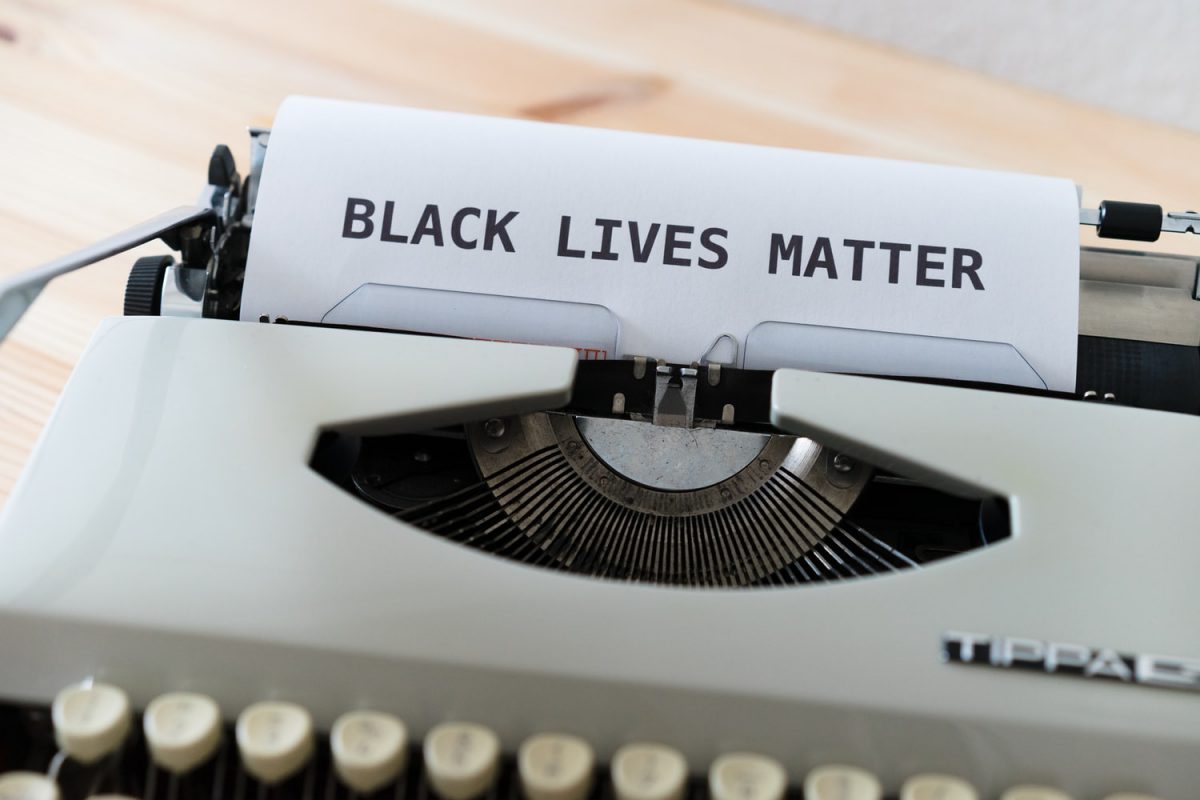As many organizations have rushed to engage in performative solidarity with the Black community while they continue to support oppressive internal cultures and business practices, it’s time for HR to seize this moment. The industry is in a unique position to play a central role in dismantling the structures that have compounded and perpetuated centuries-old inequities. Given the extent of the issues we’re facing, it’s going to take a lot of work, but the first step towards making change is to name the problem outright. The majority of our workplace cultures are racist against Black folks by design, and we need to first acknowledge that before we can begin to move forward.
It has long been considered unprofessional to talk about race or call out instances of racism in the workplace. This has not only allowed White people and others to remain ignorant to the challenges Black folks face every day, and in many cases to actively participate in creating/preserving those challenges, but it has also denied Black employees a true place at the table. Despite the estimated $8 billion that is spent on diversity and inclusion training every year, Black employees at many companies are still forced to engage in a sick series of contortions to simply get through the day. From covering, in which people can’t bring their whole selves to the office and must pretend to be someone that fits their workplace’s implicit and explicit expectations, to enduring both micro and macroagressions with no recourse, even a light workday becomes completely exhausting.
There are a number of reasons for this, not the least of which is that all of the systems we grow up with in the U.S. are designed to oppress. Anti-Black racism is embedded in our housing system, our education system, our medical system, our financial/economic system, our employment system, certainly in our criminal justice system, and beyond. In our workplaces, what appear to those making them as merit-based decisions are much more frequently based upon a credentialing system that is already stacked against Black folks, coupled with our innate compulsion to favor those who look like us. A senior White person may choose to promote a White colleague based on the ‘potential’ they see in them, when in reality it’s simply that that person reminds them of themselves when they were younger. Compound this with the dynamics mentioned above, and without even touching upon the complex landscape that Black folks with intersectional identities must navigate, the crucible of conditions we’ve created becomes inescapable.
Alleged diversity and inclusion efforts have gone on far too long without achieving legitimate systemic change for Black employees. While individual companies may have made some progress towards building more inclusive and supportive spaces for Black folks, the overwhelming majority have simply paid lip service because not only do those in charge not feel this impacts them, but in many cases maintaining systems of oppression actively benefits them. Without genuine buy-in from the top to work not just towards being not racist, but becoming actively anti-racist, every day, the movement will continue to struggle. That said, as the role of the Chief People Officer continues to gain sway within the organization, an opportunity may be emerging to drive an agenda that centers rooting out anti-Black racism, and delivers results.
The process must begin with education. Until White people and others are willing to face up to the reality of the ongoing systems, biases, etc. that factor into the status quo, and recognize and admit their active role in it, any ‘solutions’ will be superficial. HR professionals can begin by educating themselves, bringing in Black historians and anti-racism educators to share their knowledge with employees, and most importantly, by having difficult conversations with executives grounded in truth, rather than trying to preserve anyone’s feelings.
Examine your existing protocols (or lack thereof) and how they are enabling bias. Design and communicate explicit policies around the manifestations of racism and intolerance that you will not accept in your workplace. Include specific examples, along with step-by-step processes for lodging a complaint, how it will be handled, and the repercussions those found to be in violation can expect. Then actually follow through on building an environment where people can call out discrimination for what it is without fear of reprisal. Mobilize your entire workforce in the effort to identify and root out racism and oppression.
This may seem like a lot to ask, and maybe you don’t believe that you and/or your company are part of the problem. The fact is though, with centuries’-worth of unlearning and undoing ahead of us, we all have a part to play. As long as Black people continue to be murdered in the streets, in their homes, in their cars, and elsewhere, simply for going about their lives, taking the time for self-examination feels like the absolute least you can do.
We’re actively committed to starting with ourselves here at Workrowd, seeking to educate ourselves and unlearn the world as we know it. We’ve similarly been committed to diverse hiring efforts from Day 0, and continue to seek out partnerships and engagements with Black consultants and Black-owned businesses. As has been the case since our founding, we’ll be continuing to roll out additional educational materials and anti-racist resources through our diversity and inclusion-focused krowds, particularly around employee resource groups, in efforts to get critical learning tools into the hands of more employees. If you’d like to contribute and/or have recommendations for us, please keep them coming. We’re at hello@workrowd.com.


